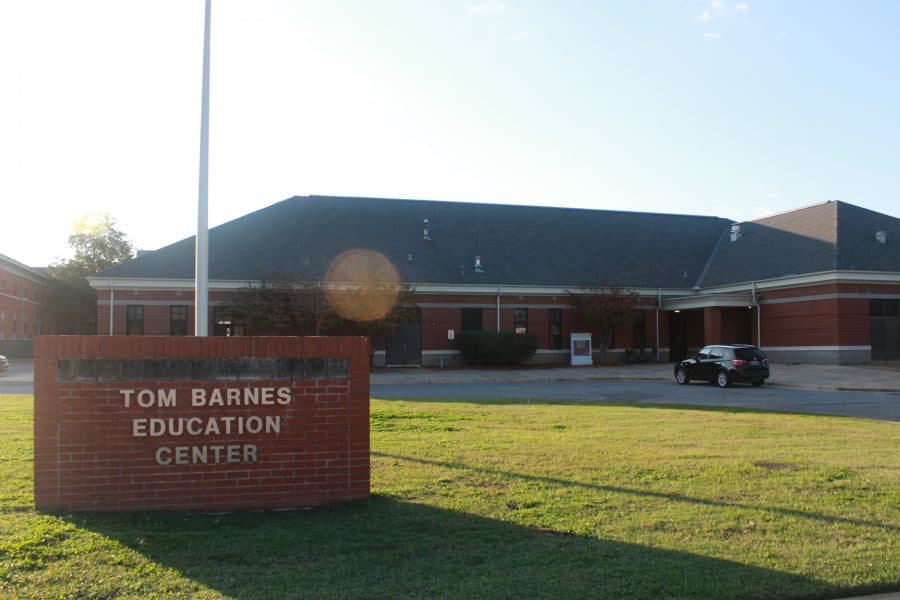Tori Swindle always knew what she wanted to do: work in a classroom and teach the minds of future generations. But, she didn’t always know what she should teach. Should she specialize in general or special education? When she expressed her concern to her University adviser, her advisor suggested that she look into the Multiple Abilities Program within The University of Alabama’s College of Education.
What makes the Multiple Abilities Program stand out is that, while there are numerous programs in the College of Education and the state of Alabama that help people earn dual teaching certification, graduates of the Multiple Abilities Program receive four certificates. The four areas of certification include early childhood general education, early childhood special education, kindergarten through sixth grade general education, and special education for kindergarten through sixth grade.
Twenty-five students are admitted into MAP, which is a five semester-long program. The group of students, or cohorts, attend class from 8 a.m. until 2:30 p.m. Monday through Friday. This schedule helps adapt cohorts to the typical school day. Swindle – a graduate of MAP and current master’s student – said the benefit of having this schedule is that you always know what your schedule will be during your semesters in the program, so it can be easier to make plans and have a part time job.
During their junior year, the cohorts complete projects that all incorporate what they will need when they enter the work force.
“They all apply very well to your field,” Swindle said. “So you do things like make unit plans and things like that which you are able to incorporate into your own classroom.”
Swindle said that through MAP, she not only developed personal friendships with her cohorts, but those friendships developed into lasting professional relationships which continues to help each of them.
“Seeing the faculty work so collaboratively together, we all work collaboratively together, also,” Swindle said. “So of the 23 girls that I graduated with, they are all my best friends. We all still keep in touch. We all still help each other out.”
Over the summer before the cohorts’ senior year, the participants have a chance to get even closer during the Summer Enrichment Workshop, or SEW. In June, the students in MAP teach a three-week workshop or summer camp for students who have been identified as gifted or talented. Swindle said that this was one of the highlights of the entire program because not only did she get to work with these incredible kids, but – along with students from the gifted and talented masters program – the cohorts get to teach them everything from the science of all things summer to fairytales and medieval times.
For their senior year, the cohorts are a part of a year-long internship with a school in Tuscaloosa county. They start on the school’s first day of class. Nicole Swoszowski, program coordinator for MAP and associate professor, said this is very important because no experience is quite like being there from the beginning. The cohorts get to be present when the teacher sets behavioral expectations and goes through the plans for the year. Each cohort will complete one semester in a general education classroom and one semester in a special education classroom.
“I was just the teacher,” Swindle said. “You have to be there for faculty meetings. You have to be there when the teachers get there. You have to be there for after school, leadership nights, parent night, PTA meetings. You are expected to be there.”
Swindle knew that MAP was a great fit for her because of the structure and the experience she would receive to prepare her to become a teacher. Now, she doesn’t have to be worried about whether she wants to work in a general or special education classroom because MAP has prepared her for any challenge that she may be faced with.
To be accepted into the Multiple Abilities Program, interested students must submit an application during their sophomore year, including an unofficial copy of their transcript. After submitting their application, students will be asked to schedule an interview and provide a writing sample.
The program begins in the fall of the students’ junior year and goes through the summer and into their senior year. Participants must be willing to stay in Tuscaloosa over the summer and follow the routine and structure of the program, which also helps to narrow down applicants.
One of the first things that Swoszowski said they look for in applicants is the students’ academic history and which courses they excel in. Interviewers are interested in the applicants’ current depth of knowledge and interest about education and MAP.
“We ask, ‘Why are you interested in this program rather than any other programs?'” Swoszowski said. “Just because we are trying to really understand about the fit.”
One if the most important things that MAP gives its students is the connections that are made from the extensive hands-on experience. These connections last a lifetime, cohorts often return to visit the schools where they got their start as educators.
“Some of the teachers would even say, ‘It just feels like you are a part of the faculty,’” Swindle said of the school where she completed her year-long internship. “And that is exactly how it feels.”







